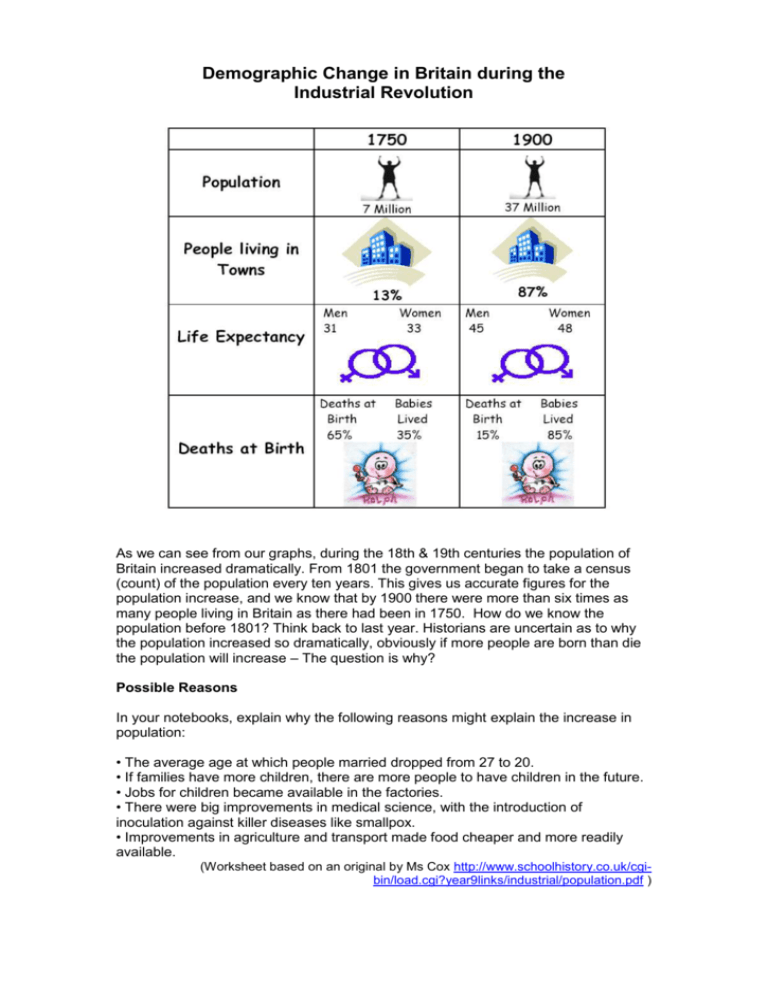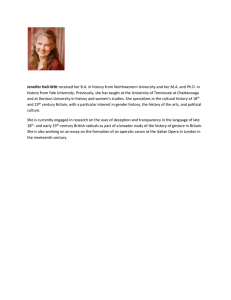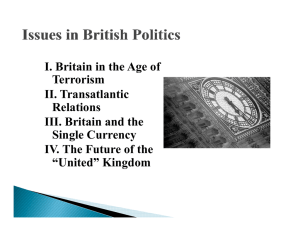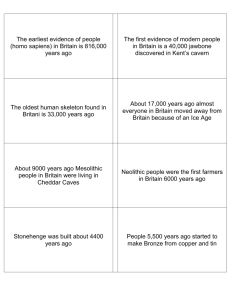Demographic Change in Britain during the Industrial Revolution
advertisement

Demographic Change in Britain during the Industrial Revolution As we can see from our graphs, during the 18th & 19th centuries the population of Britain increased dramatically. From 1801 the government began to take a census (count) of the population every ten years. This gives us accurate figures for the population increase, and we know that by 1900 there were more than six times as many people living in Britain as there had been in 1750. How do we know the population before 1801? Think back to last year. Historians are uncertain as to why the population increased so dramatically, obviously if more people are born than die the population will increase – The question is why? Possible Reasons In your notebooks, explain why the following reasons might explain the increase in population: • The average age at which people married dropped from 27 to 20. • If families have more children, there are more people to have children in the future. • Jobs for children became available in the factories. • There were big improvements in medical science, with the introduction of inoculation against killer diseases like smallpox. • Improvements in agriculture and transport made food cheaper and more readily available. (Worksheet based on an original by Ms Cox http://www.schoolhistory.co.uk/cgibin/load.cgi?year9links/industrial/population.pdf )











